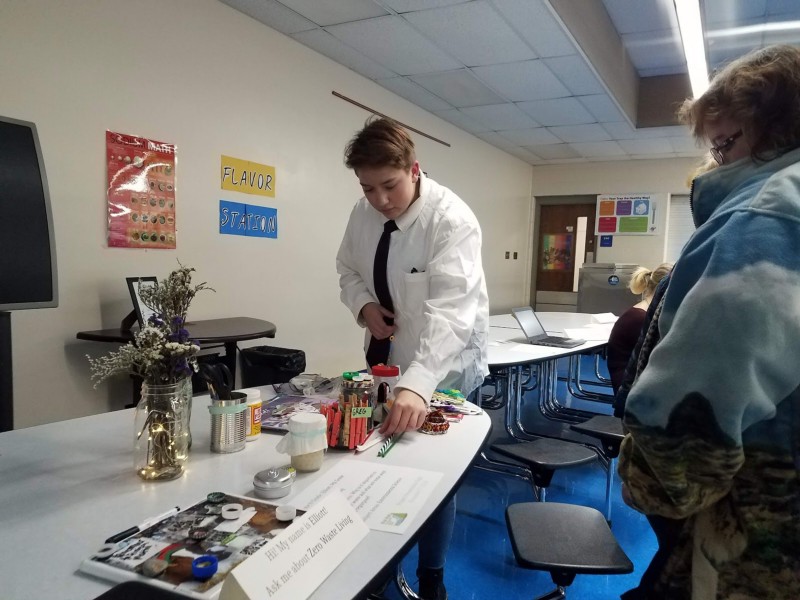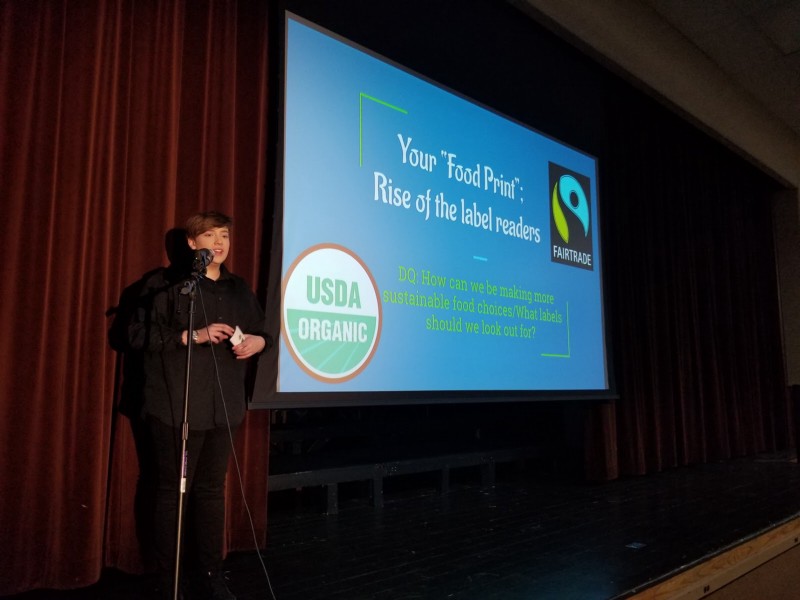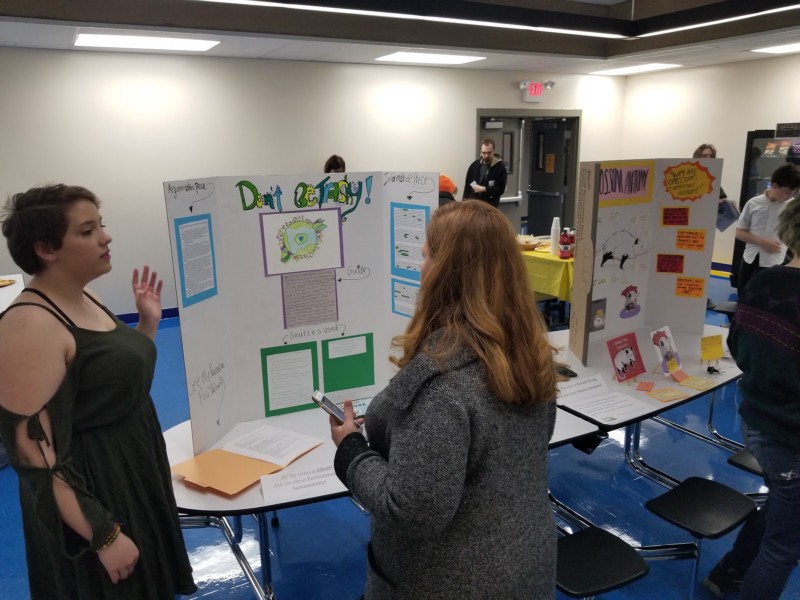Trash might be the biggest global problem that often gets swept under the rug. Research by Rubicon Global shows that while “Americans make up roughly 5% of the world’s population, they generate nearly 40% of the world’s total waste.” So it makes sense that student Elliott, from High Marq Environmental Charter School (HMECS), decided to get to the bottom of this trash epidemic and find out more about what we buy, what we eat and what we do that negatively and positively affects the environment.
“Don’t Be Trashy” is a capstone project designed by Elliott during their freshman year. In this project, Elliott investigates the driving question “How can we live more environmentally sustainable lives?” from a variety of perspectives. According to their PBL advisor, Skylar L. Primm, “the biggest lesson Elliott learned was that small steps toward sustainability are worth celebrating, and if your goal is perfection, you’re setting yourself up for disappointment.”
In embracing the directive to “think globally, act locally,” Elliott recognizes that living sustainably requires continuous learning and day-by-day effort. Elliott reflects, “Just because you have the information to change the world, doesn’t mean it’s all on you, and it doesn’t mean you won’t make mistakes.”

In this student-led project, Elliott divided their research into three essential parts:
- What you buy (or don’t buy) and the concept of minimalism.
- What you eat (or don’t eat) and what diet is best for the environment.
- What you do (or don’t do) and how you can add to the earth in a positive way.
In discovering the complexity of sustainability, Elliott researched the following supporting questions as well:
- What is methane and how is it created?
- What are the effects of plastic waste?
- What are the effects of plastic production?
- How can I repurpose my recyclables?
- What can I do to reduce my waste and others?
- Why is it so important to reduce my and others’ waste?
As a result of this investigation, Elliott taught their audience about food prints and sustainable shopping, which are two ways in which our actions at the local level are tied into global networks. Elliott also led an up-cycling workshop during a HMECS Presentation Night and initiated a “Zero Waste Support Group” for students and staff.

Project advisor Skylar recommends this project for schools as it holds relevance anywhere and everywhere, “as long as students are passionate about the subject. Because Elliott was inspired by environmental sustainability,” continues Skylar, “they were able to extend this as a year-long project that was successful because they broke it into multiple smaller chunks. Students who struggle to maintain interest in a long-term research project may benefit from this style of project-based learning. This project shifted some during the year, and I think it’s important to remember that every project is a process, not just a final product. Flexibility and adaptability are good skills for teachers as well as students.”

Elliott reflects, “this project is extremely important for me because it is not only educating myself on how to be more environmentally sustainable in my everyday life, but also telling others what they can do, why they should and possible outcome for if they do not. This project is applicable to everyone who is interested in reducing their waste and repurposing material.”
Want to share your PBL passion projects with others? Tell us about your coolest project to date for best PBL practice sharing!